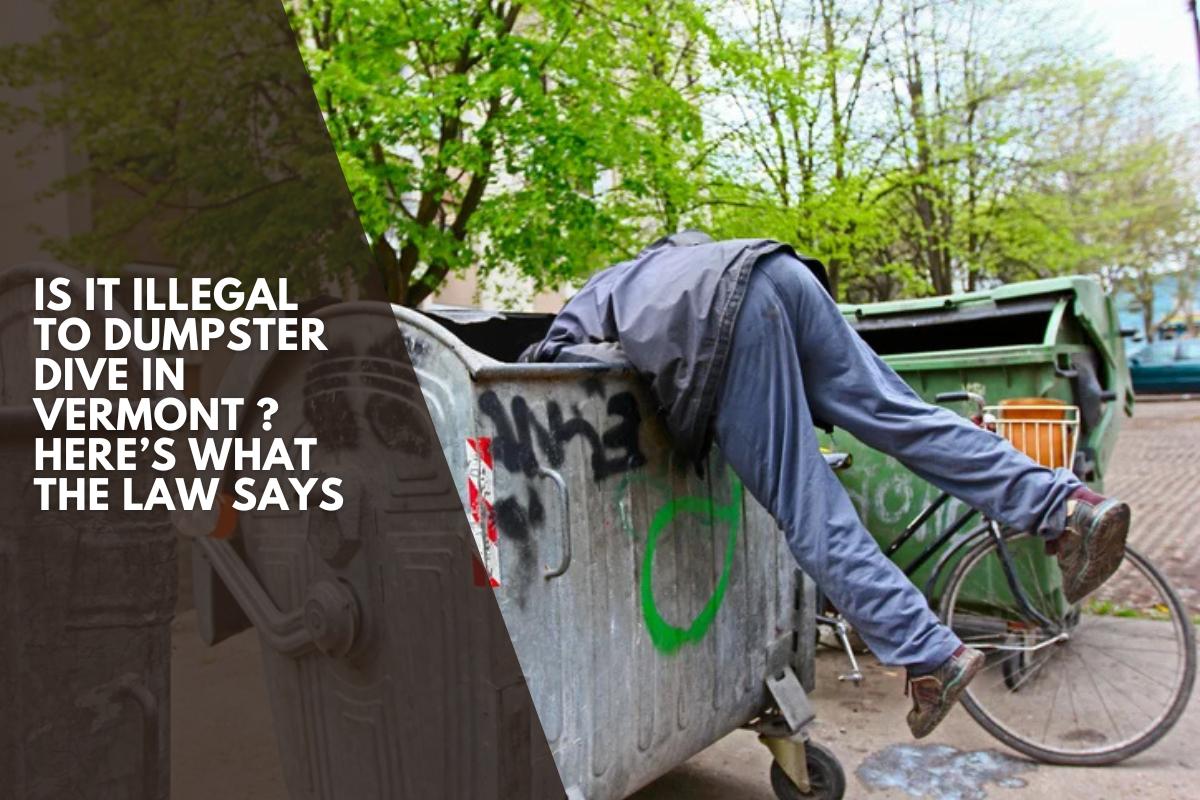Dumpster diving—the act of rummaging through commercial or residential trash to find usable items or food—has gained attention for its environmental, economic, and social implications. Many wonder about its legality, especially in states like Vermont, known for progressive policies. Here’s a clear look at the legal landscape surrounding dumpster diving in Vermont as of 2025.
Dumpster Diving Legality in Vermont
In Vermont, dumpster diving is generally legal on public property. This means that if a dumpster is placed in a publicly accessible area where the public has the right to be, individuals may retrieve discarded items without facing legal penalties. This legal stance aligns with the broader understanding that once an item is thrown away into public trash bins, the original owner relinquishes ownership rights, making it open for retrieval.
However, the law is somewhat ambiguous and situational. The legality depends heavily on where the dumpster is located. For example, dumpsters on private property—such as behind a business or inside a fenced area—pose more legal risks for dumpster divers. Entering private property without permission can be deemed trespassing, which is illegal in Vermont and most other states.
Trespassing Concerns and Property Rights
The primary legal barrier to dumpster diving in Vermont emerges from property law rather than specific anti-diving statutes. Even if diving itself is not criminalized, entering fenced or posted private property to access a dumpster constitutes trespassing.
Businesses and private property owners often post “No Trespassing” signs or lock dumpsters to deter unauthorized access. Violating these can lead to legal consequences, including fines or arrest. Therefore, respecting property boundaries and seeking permission where possible is recommended to avoid legal trouble.
Law Enforcement and Community Perspectives
Vermont law enforcement generally treats dumpster diving as a low-priority issue when done respectfully and without causing disturbances. According to Sgt. Wade Labrecque of the Burlington Police Department, outright criminal laws banning dumpster diving do not exist. Complaints are rare and usually linked to safety or nuisance concerns rather than the act itself.
Community initiatives like “Food Not Cops” in Vermont highlight dumpster diving as a form of food justice and resistance against food waste. Moreover, local supermarkets sometimes donate unsold edible food to food banks, making “dumpster diving” less a necessity and more a conscious choice for some participants.
Safety and Ethical Considerations
While legally permissible in many scenarios, dumpster diving carries inherent health and safety risks. Trash can contain sharp objects, spoiled food, or hazardous materials. Divers are advised to:
Summary: Navigating Dumpster Diving in Vermont
Legal on public property: Dumpster diving itself is not criminalized when performed on public land or openly accessible dumpsters.
Private property caution: Entering private property without permission is trespassing, regardless of the intent to dumpster dive.
Respect and safety: Practicing caution, respecting property rights, and prioritizing hygiene is essential.
Community context: Vermont’s approach is generally tolerant and aligned with efforts to reduce waste and combat food insecurity.
In essence, while dumpster diving in Vermont is not broadly illegal, it requires careful navigation of property laws and etiquette. Considering these legal nuances can help ensure that dumpster diving is both a lawful and responsible practice for those who rely on it or do it deliberately for environmental or social reasons.
Sources
(https://www.rakevt.org/2023/02/11/the-only-thing-between-you-and-your-next-meal/)
(https://worldpopulationreview.com/state-rankings/dumpster-diving-legal-states)
(https://www.sevendaysvt.com/food-drink/dumpster-divers-go-gourmet-with-garbage-5473806/)
(https://www.rolloffdumpsterdirect.com/dumpster-diving-illegal/)
(https://www.theenvironmentalblog.org/2025/04/is-dumpster-diving-legal/)











